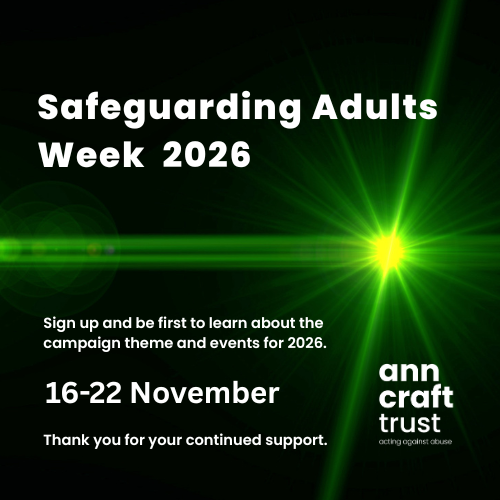
Safeguarding Adults Week is a time for organisations to come together to raise awareness of important safeguarding issues.
We believe that working in partnerships allows us to share our knowledge of safeguarding, learn from others, and work towards creating safer cultures.
During this year’s event, we’ll be collaborating with our partners to explore a different safeguarding theme each day. We’ll release more information about this year’s themes in the coming months.
Get Involved!
Want to become a Safeguarding Adults Week partner?
You can support us by:
- Writing an article about a key safeguarding topic
- Taking part in one of our Safeguarding Matters podcasts (or recording your own podcast!)
- Hosting an online seminar exploring one of this year’s themes
- Delivering a talk, or a workshop, at this year’s Safeguarding Adults Conference in Nottingham (Wednesday 18 November)
We’re also open to discussing your ideas, whether it’s for a theme, an area of focus, a resource, or an initiative.
For more information, or to share your ideas, email us at ann-craft-trust@nottingham.ac.uk.
Sign Up To Be The First To Hear About All Things Safeguarding Adults Week!
Sign up below to receive email updates about Safeguarding Adults Week.
As well as regular updates about this year’s resources, events, and initiatives, you’ll also be the first to hear about all future Safeguarding Adults Week events. You’ll even get an opportunity share feedback and suggest topics for next year’s event, and beyond.
This is also a chance to sign up for our quarterly Bulletin, and our monthly Sport updates. Just tick the boxes below, to let us know what sort of updates you’d like to receive.
Unless you sign up for additional updates, we will only contact you about Safeguarding Adults Week updates, and we will not share your email with anyone else.
